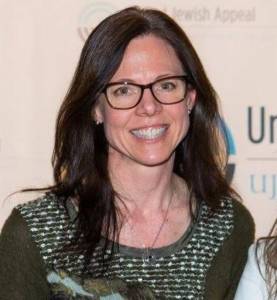A Canadian pediatrician volunteered with ALEH, Israel’s foremost network of state-of-the-art facilities for children with severe complex disabilities. The experience significantly improved her own life as well.
There’s no doubt that time is our greatest commodity. That’s why so many people are afraid to give their time away.
“I would like to volunteer,” they say, “but I just don’t have the time.”
Sure, we all work, have multiple familial obligations, and strain ourselves to find the time to simply take care of ourselves. But what would happen if we never made time to give back? In addition to doing our communities and favorite causes an enormous disservice, we would also be robbing ourselves of something profoundly wonderful. Time and again, those who donate their time to worthwhile causes report that they gained more from the experience than they gave.
But what does that really mean?
It’s no secret that volunteers have an enormous impact on the health and well-being of communities worldwide. Day after day, volunteers deliver critical services that heal and build the minds, bodies and souls of people in great need. These brave and benevolent men and women spend their time as fire fighters, search and rescue professionals, neighborhood watch teams, environmental advocates, tutors, teachers, coaches and mentors. They deliver meals to homebound seniors or homeless youth, man the phone lines at domestic violence and sexual assault centers, and engage children with severe disabilities to ensure their continued health and maturation and the achievement of set goals.
‘The Lifeblood of Civilized Society’
For so many people, the love and attention of a volunteer is the difference between strength and struggle, between hope and hopelessness.
Volunteers are critical partners in the growth and development of society. Whether actively giving of their time through formal volunteering programs or simply taking certain duties upon themselves informally, volunteers are the lifeblood of civilized society. And while these individuals are no doubt selfless, they will often admit to a single “selfish” motive: volunteering makes them feel incredible.
Numerous scientific studies have proven that volunteering reduces stress and improves physical and mental health. Researchers explain that when one focuses on someone other than himself, it interrupts his usual tension-producing patterns. When you throw in the development of meaningful connections with other individuals, the effect is magnified. In other words, benevolence is a stress reducer, and camaraderie amplifies the positive effects.
And then there is the act of giving. By measuring hormones and brain activity, researchers have discovered that being helpful to others is one of the most pleasurable human experiences. It seems that human beings are actually hard-wired to enjoy the act of giving to others. So, the more we give of our valuable time, the happier we feel.
I can vouch for the science, as giving of myself in this way has dramatically improved my life.
In July 2013, my family and I visited Israel for the first time on an organized tour with our synagogue. Our tour bus driver told us about ALEH, Israel’s foremost network of state-of-the-art facilities for children with severe complex disabilities, explaining that his adult brother lived at ALEH’s rehabilitative village in the Negev. As a pediatrician, I was intrigued by his description of ALEH’s continuum of residential care for children with severe disabilities as they grow from adolescents into young adults, and became eager to visit.
Needless to say, our visit to ALEH Negev-Nahalat Eran was magical. Never before had I seen a rehabilitation or long-term care facility that so clearly exemplified how “the world is built on loving kindness.” I fell in love with the children and their dedicated caretakers, and I embarked on a mission to raise awareness about ALEH upon my return home.
I now do everything in my power to connect our community in Canada to the ALEH family. When my son celebrated his Bar Mitzvah, he requested that guests make donations to ALEH in lieu of gifts. Our synagogue has established an ongoing relationship with the organization, which I coordinate, to ensure that we continually give back to our newfound Israeli family in any way we can. And I take every opportunity to visit ALEH and lend a hand.
While volunteering might not be for everyone, I believe more of us should be “selfishly” exploring the positive impact that time helping others may have on our lives.
Older adults, especially those who have retired or lost a spouse, can find a new sense of purpose and expand their social group by volunteering locally. Young volunteers can gain professional experience that will help them plan their career paths. And everyone can stay motivated, productive, healthy and happy by shifting their focus away from their own worries and doubts and towards projects that will positively impact their favorite causes, communities or even the life of just one person in need.
Time is truly our most valuable commodity, but it is well worth our while to spare some for the sake of moving our society forward and drastically improving our lives. So, rearrange your schedule and find the time to be gloriously selfish. You’ll be glad you did.


